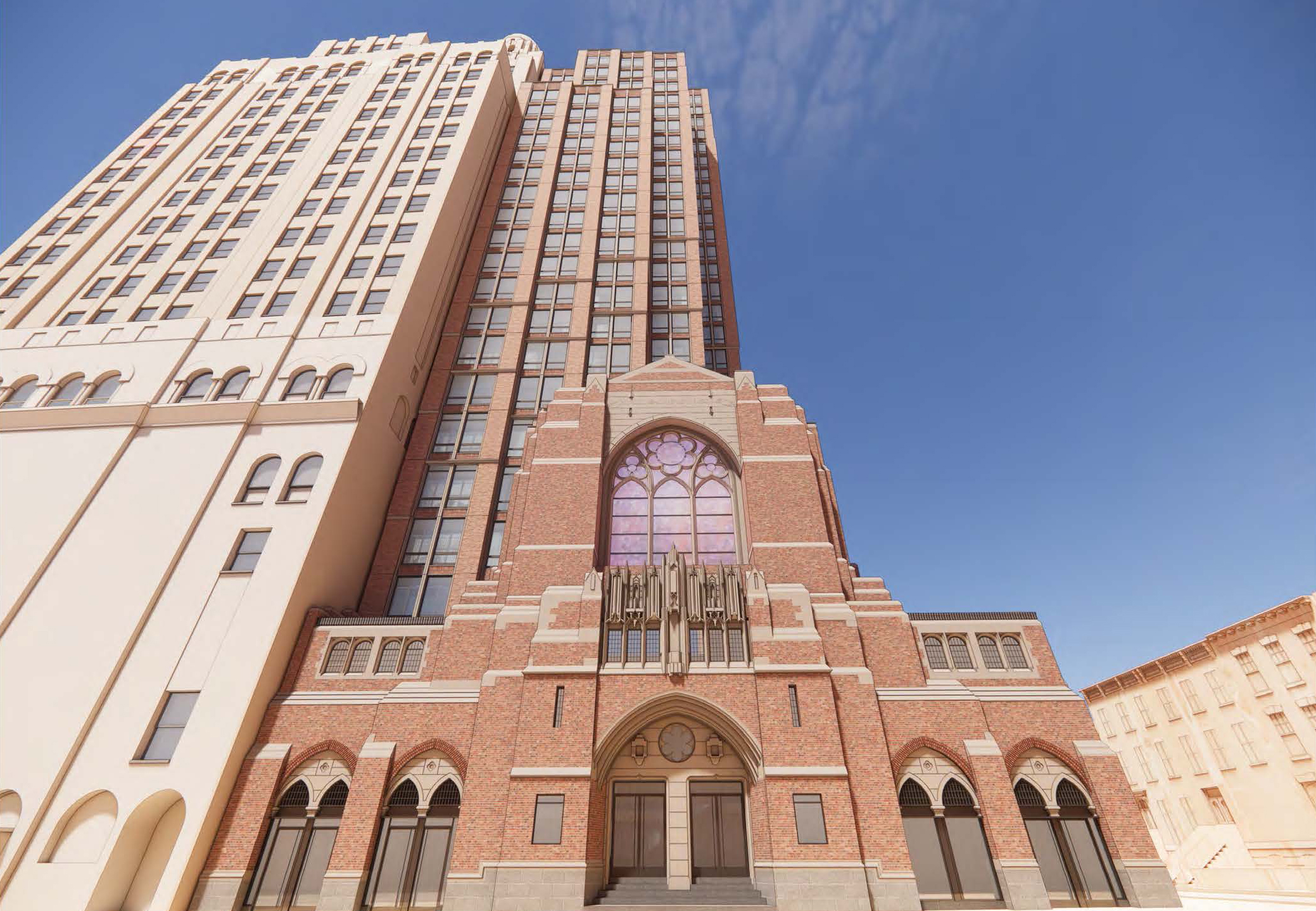Brooklyn Co-Housing Moving Closer to Reality?
Co-ops, until the recent condo building boom, were once a dominant form of housing here in New York, but many found they weren’t actually that, you know, cooperative. So a Brooklyn couple is trying to bring another form of housing to the borough, a Danish model of communal living called co-housing. So says Sarah Ryley…


Co-ops, until the recent condo building boom, were once a dominant form of housing here in New York, but many found they weren’t actually that, you know, cooperative. So a Brooklyn couple is trying to bring another form of housing to the borough, a Danish model of communal living called co-housing. So says Sarah Ryley in the Real Deal. Individuals own their own units in co-housing, like co-ops, but there are shared communal spaces, usually including kitchens and dining areas where residents can eat together. Most American co-housing communities are in rural areas, but in February Alex Marshall incorporated Brooklyn Cohousing LLC. He’s got about 25 interested households, and they’re looking for property between $15 and $35 million for the group. Is Brooklyn ready for such communal living, and will the market provide?
Living Closely With Neighbors [The Real Deal]
Co-housing Sketch. Photo by matthewsargent.





Heather:
pss11211 does use some common post-structuralist terminology (I do hate the term “other”) but at least doesn’t bring up anything related to identity politics, something that happens all to frequently on this site (i.e. FUREE). I would not classify co-housing as liberal, at least in the same vein as the policies typically advocated by the democratic party and their supporters.
While democrats failed miserably with their many destructive and wasteful social programs, so too have republicans failed with a false capitalist system predicated on government graft and state sponsored usury. Both parties, by advocating national and international solutions to what should be local problems, will be unable to cope with the numerous crises that will result from increasing resource scarcity in coming years.
Co-housing represents a small step towards people attempting to solve problems for themselves in their own way. It has nothing to do with “social change”, inclusion or exclusion.
Co-housing is not a project “by” certain people “for” others. It is a project by specific people for themselves and no one else. If you want to develop an age restricted co-housing facility, you can do that – but you’ll have to keep to 55+ to comply with fair housing regulations.
The accusation of pompousness also is very much reflective of the flaw of individualism in our modern state. People do not simply want the right to pursue their own destiny, they want the approval of society at large. I see no reason why you wold consider such a benign project such a threat to your personal ego.
Maybe if the idea kicks off they will open a second co-housing building for those of us who don’t want to live with the pompous 25-year olds? And then perhaps also one for people who like to pay other people to wash their dishes?
What depresses me the most about the new locovore liberalism is that it’s not liberal in any sense of the word. Anyone who doesn’t fit in with the model is not worthy of being included. Social change? Only for the effete few. And then there’s the handy, “blame capitalism.” You know, while you’re looking for a building to BUY… in one of the most expensive cities in the world… and, why are you here again and what do you do for a living?
If I close my eyes I’m back in my living room and twelve again, listening to Sunshine, the man who refused to wear shoes, pontificate about how “they” just don’t want the peoples to be free. As I recall, thanks to his main line family, Sunshine himself was extremely free.
Thank you, Polemicist. I appreciate that.
Issues of co-housing / cooperative living come up every once in a while in the mainstream media. Whenever there is a forum for people to comment on whatever the article is about, that forum is ALWAYS dominated by those people who are simply unwilling to clean up someone else’s cereal bowl. (I’m eating cereal this very minute, and I can put my own bowl in the dishwasher! If I don’t, and someone complains, it’s not the end of the world.)
It amazes me how much energy individuals like that are willing to spend knocking a perfectly valid lifestyle option, without actually investigating what it may have to offer, or knowing full well that they are simply not interested. Why do they insist on behaving this way? Is it fear of the unknown or the “other”? Is it a bad experience in the past with the roommate from hell? Most likely, it’s because people like that ARE the roommate from hell, and they know that they would constantly be getting feedback for their behavior if they were in a communal situation.
Co-housing, cooperative and communal living situations work best when there is a Social Contract, one that everyone involved can agree upon. It could be as simple as “Everyone must wash their own dishes,” or as complex as whatever some of the various religious communities have in place. A lot of people are reluctant to agree to a social contract, because they believe that it may limit their options, or that they may actually be held accountable for their actions.
This country was formed with a contract, which is now being eviscerated by people who don’t feel like playing by the rules. How’s that working out? I would be willing to wager that some of the same people who would complain the loudest about the possibility of having to wash someone else’s dishes, are also some of the same who complain the loudest about the way the Constitution is being violated by the criminal political class. I can’t prove this, but I would still bet on it!
What are we going to do in the near future? Are we going to wait for everyone in China and India to have their own automobile, dishwasher, washer/dryer and lawnmower, all powered by fossil fuels, before we decided to retool something, ANYTHING to keep our pretty little world livable? Personally, I think everybody on the planet should have and deserves access to an automobile, dishwasher, washer/dryer and lawnmower, but do we REALLY each need to OWN one that we keep to ourselves? Maybe YOU do, but I don’t. Increasing numbers of other people in our society are realizing that they don’t either, and can share. And, at a time when the economy is shaky at best, maybe it’s time to start thinking like that a little more.
Something’s gonna give, and I don’t mind giving a little of myself to help ensure that when that something does give, the pain is as minimal as possible. The people who aren’t willing to give a little of themselves… don’t have to! They may, however, find their lives to be a bit empty and lonely and hopefully not too difficult when our civilization goes through its next upheaval. It’s happening as we speak, and it’s happening largely as a result of the isolation created by the “manufactured needs” of the marketplace. Big Capitalism is a great way to distribute goods and services, but it makes for a lousy state religion. Big Capitalism wants us each to have our own automobile, dishwasher, washer/dryer and lawnmower, but we don’t have to heed its siren call for more, more, more!
If we don’t want to…
pss11211
What a great post.
When we used to visit Pendle Hill, one thing I noticed, even at age ten, was how none of the adults seemed to have jobs. Are there jobs in Saguerties? What do those people… do?
Okay, yeah, I am biased. At least unless we decide to enroll our little snowflake in Brooklyn Friends… in which case I will have to re-connect with my hippie roots.
One thing though: I’d be curious to see what rent-stabilized building gets gutted to realize this urbran “utopia” — and what happens to the tenants.
I prefer my actual community, which is full of people that I have nothing in common with to some kind of idealized vision, where, presumably, we all have to be ecologically correct all the time. Unless of course, these turn out to be the real estate deals of the century… but, you know, I sincerely doubt that.
to me, a danish commune consists of like-minded people bound together by their love for breakfast pastry. that is a workable concept. the labor can be shared for making those cinamon rolls and cherry streudel, and omigod, the cheese and apple turnovers. beam me up.
So wait, is co-housing just a poor man’s condo? where you get all the services but instead of paying out of pocket for them you work 3 hours a week?
Well, I can see a difference between the urban environment with its diversity (block, ‘hood, boro, city) being a positive, and ones immediate living space, so don’t see a paradox there. And the only reason for the like-mindedness is that there are probably different types of rules in a cohouse than in a condo, which may work better if the people were say, artists, or environmentally active.
“A co-house is intentionally setup by a group of like-minded persons who want more social interaction than casual meetings in the lobby, the pool or at board meetings”
I thought one of the great benefits of living in an urban environment is to NOT live in a community simply made up of like-minded persons????????